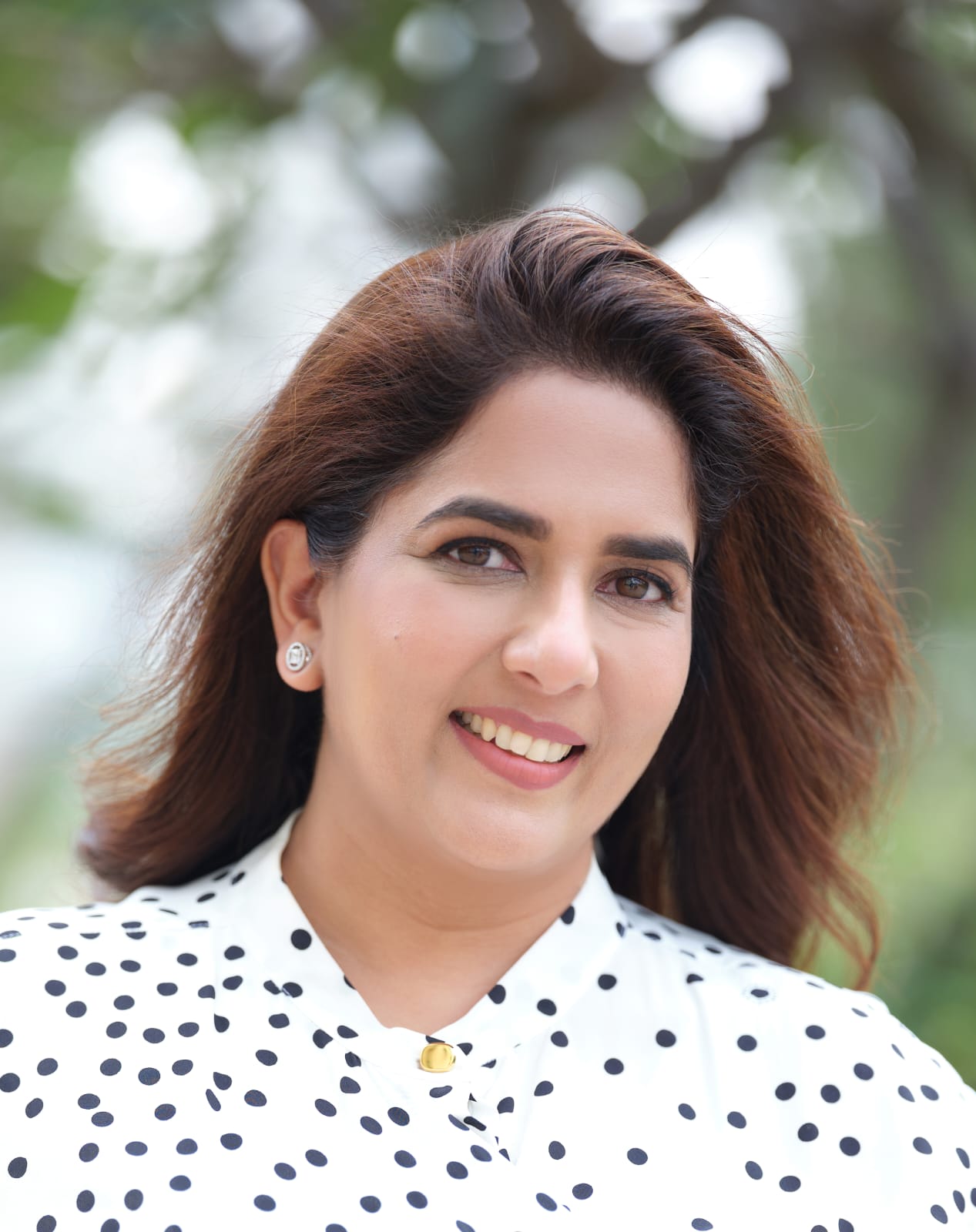Everyone coped with the lockdown in their own way. Aparna Piramal Raje, for one, wrote a book on her struggles with mental illness. “Chemical Khichdi: How I hacked my Mental Health” tells the story of Aparna’s struggles with bipolarity, from her early days as a student at Oxford and Harvard Business School, to her induction and eventual exit from the family business (her father Dilip Piramal is the Chairman of VIP Industries, of VIP luggage fame) to her recent reinvention as a writer. A mother of two boys, Aparna, 46, is a columnist, public speaker and also visiting faculty member at Anant National University Ahmedabad. In a conversation with VO!, she talks about resilience, dharma and how she avoided the ‘bipolar’ label for so long:

Vo!: One unique feature of your book is the way you interview friends, family, colleagues, doctors about how they dealt with your bipolarity. How did you get them to agree?
Aparna: I was sure I didn’t want to write only a memoir. There were many who had already done that. I wanted the book to be useful in the ecosystem and a way to do that was to feature everyone’s voice. There were some who said no to being interviewed. There were also a few who advised me against writing this book at all. I see my writing as an act of resilience. I’ve always kept a journal to help me gain clarity and self-awareness and the book contains many extracts from it. I wrote during the lockdown and it helped me get through a period which was really hard on those with mental health issues.
Vo!: How did you cope with your father removing you as CEO of the family’s office furniture company because of your mental health issues?
| Aparna: I was going through a hypomanic phase then and my father said I should do something else, that I was not cut out for running a business. It was horrible. I was 27, a Harvard Business School graduate and I wasn’t ready to accept it. After I recovered, I went back into the business, and I did well for some time. But the mania returned after a while. That was when my husband, Mom and sister sat me down and advised me to get out. |
Vo!: Deepika Padukone has recently spoken about her struggles with depression. Is there a corelation between creativity and mental illness?
Aparna: Mental illness is often triggered by stress, but I don’t know if there’s a link with creativity or celebrity. According to official estimates, 1% of the population is bipolar, a large number. Everyone around a person with mental illness gets affected as well. Parents, siblings, friends, neighbours, colleagues. Mental health issues cut across society. I’m lucky in that I come from an affluent family and my mood swings are not triggered by financial issues, the biggest cause of stress. I’m also privileged in that no one in my immediate circle has ever made me fill the slightest bit ashamed of my condition.
Vo!: But it took 13 years for you to seek medical help…
Aparna: I thought I could deal with it without medication. In 2002, I had met a Harvard psychiatrist who said I was not bipolar, but only had problems managing transitions. He suggested counselling. In Mumbai, my psychotherapist Radhika Sheth was sceptical of medication and the bipolarity ‘label.’ It was only after a particularly bad psychotic episode I went through in 2013, that we realised as a family that I needed immediate medical attention. It happened when I had gone for a retreat at the ashram of Bihar School of Yoga in Munger. My husband Amit had to come get me from Munger. Returning home, I was put on lithium, the most time-tested drug for bipolarity.
Vo!: You also write about spiritual therapy and explore the concept of dharma…
Aparna: I’ve written about seven therapies that have helped me, including medical therapy. There’s the therapy that comes from being surrounded by loving family and friends and empathetic allies. There’s the therapy that comes from the right kind of work and lifestyle. I’ve written about dharma as part of self-therapy and spiritual therapy. I believe dharma is not defined by duty as we normally understand it to be. It is your essential nature, your identity. But don’t get me wrong. I don’t see my mental illness as my only identity. It is a medical condition, different from my personality.
Vo!: How does your coming out as bipolar compare to your sister Radhika coming out as lesbian?
Aparna: Radhika has always been a huge inspiration. I call her Vitamin Rads and my book is dedicated to her. There are parallels to her coming out and mine. Mental health is also an invisible condition that is easy to hide. Without family acceptance it is hard to come out to the outside world.
Vo!: Do you see the Piramal family becoming like the Sarabhais, known less for business and more for achievements in other fields?
Aparna: There’s no doubt we’re an unusual family. But I think the Piramals will remain known as a business family more than anything else. I have moved out of the business, but my sister Radhika is still involved in VIP Industries. Then there’s the larger family, which includes my uncle Ajay Piramal.
Vo!: How has it been for you since the book was published?
Aparna: The book is doing well and it seems to be benefiting people. For example, one of the start-ups I’ve mentioned in the book says that a lot more people have reached out to them with their mental health issues. Many patients and caregivers are writing to me privately with their concerns. I know therapists who are using it in their work. Even those without a mental health condition are finding it an inspiring story of resilience, corage and vulnerability.
Also Read: Meet the Two Frenchmen of La Maison, Ahmedabad’s Chic New Vegan Café













